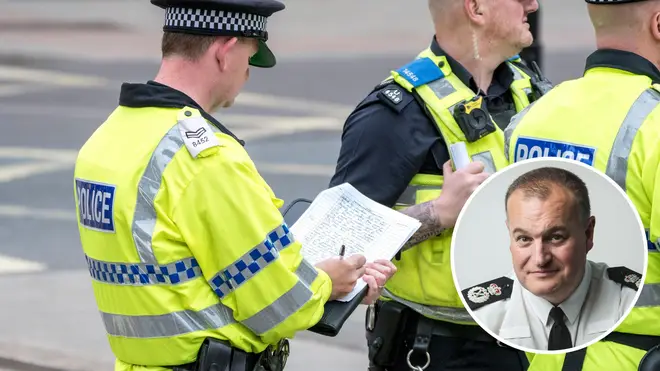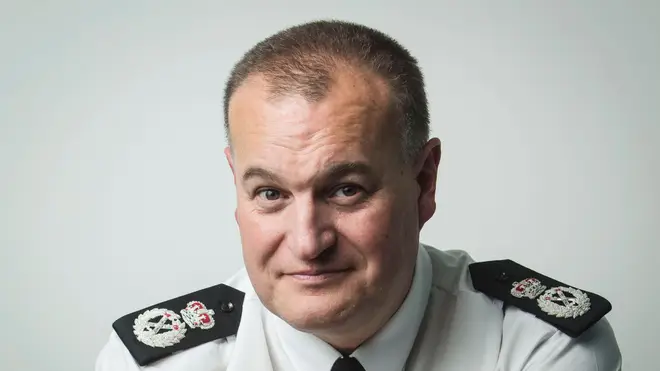
Nick Ferrari 7am - 10am
1 August 2022, 06:11

The way police have gone about recording non-crime hate incidents has been a "waste of time", the chief of one of Britain's biggest forces has declared.
Stephen Watson, of Greater Manchester Police, said officers had ended up getting involved in "stuff which is just not a policing matter".
He welcomed "sensible" changes to guidance around non-crime hate incidents, which see police keep a record of problems they believe have been motivated by prejudice over race, religion, disability, sexuality or gender identity but a crime has not been committed.
"In certain circumstances, there are actually first-class examples of where we've just completely got this wrong," Ch Con Watson told The Times.
"We've got ourselves involved in stuff which is just not a policing matter, we've wasted our time as a result and we've caused people to question whether, frankly, we know what we're doing."
Read more: Met strip-search five children every week without first arresting them, LBC reveals

New guidance from the College of Policing says non-crime hate incidents should not be recorded in cases where they are trivial, irrational or if it cannot be concluded that what happened was motivated by hostility.
People who are contributing to a "legitimate debate" should not be stigmatised "because someone is offended", and recordings should be as non-intrusive as possible, which could allow officers to forgo recording names if it's not necessary.
Around 120,000 people have had their actions recorded as such an incident in the past five years.
However, Ch Con Watson stressed there are still times when recording the incidents could help.
He referred to Fiona Pilkington, who killed herself and her disabled daughter in 2007 after enduring years of bullying.
Recording the incidents could have built up a picture of what was happening to her, but police treated each instance in isolation.
"There are shades of grey in the space where we do need to know what is happening so that we can combat a potentially grave outcome," he said.
"I do think that the balance has got somewhere out of kilter, however, and I think we've become too assiduous at interpreting some of the rules to mean that if anybody at any time for whatever reason is offended, there somehow needs to be a police record."